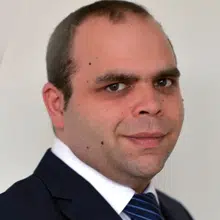
TECHNIA Simulation Learning Program – Coupled Pore Fluid Diffusion And Stress Analysis
Languages
Expand your Abaqus knowledge throughout the year with the paid TECHNIA Simulation Learning Program
Topic:
In geotechnical problems, there is a need to model single phase flow through a soil. Fully saturated flow, partially saturated flow, or a combination of both may be needed to capture the soil mechanics. For example, saturated flow can be used to study the soil consolidation under foundations. Partially saturated flows can be used to study irrigation and hydrology problems. Combined flows can be used to model seepage of water through an earth dam.
In Abaqus, these situations can be modeled using a coupled pore fluid diffusion/stress analysis or a *SOILS analysis. Generally, a porous medium is modeled by a conventional approach: the medium is a multiphase material.
The elementary volume (dV) is made up of: 1) volume of grains of solid material (dVg), 2) volume of voids (dVv), 3) volume of wetting liquid (dVw), that is free to move through the medium if driven). The porous medium is modeled by attaching the finite element mesh to the solid phase; fluid can flow through this mesh.
This procedure was initially developed for geotechnical problems, but has more recently been adapted to model human soft tissues, such as knee joint cartilage. In this webinar, we will explore some of the theory and applications of this procedure type. We will go through some examples from the geotechnical side and see how and why the procedure can be adapted to life sciences areas.
What is the TECHNIA Simulation Learning Program?
The TECHNIA Simulation Learning Program is a paid series of 10 webinars delivered during the year. Signing up to the program gives your company full access to the 10 webinars, so every employee in every location can benefit.
The content of the presentations can be provided on request in pdf-format after the webinar. You will also get access to the recordings of the webinars.
You can find an overview below of a few of the handled topics in the past years:
-
- Plug-ins & Add-ons for Abaqus
- Thermal Analysis with Abaqus
- Special Purpose Elements
- Modelling Viscoelasticity with Abaqus
- Meshing techniques with Abaqus
- Solving convergence issues with Abaqus
- Composites approach with Abaqus
- Constraints in Abaqus
- Parametric optimization with Isight
- Solving contact related convergence issues with Abaqus
